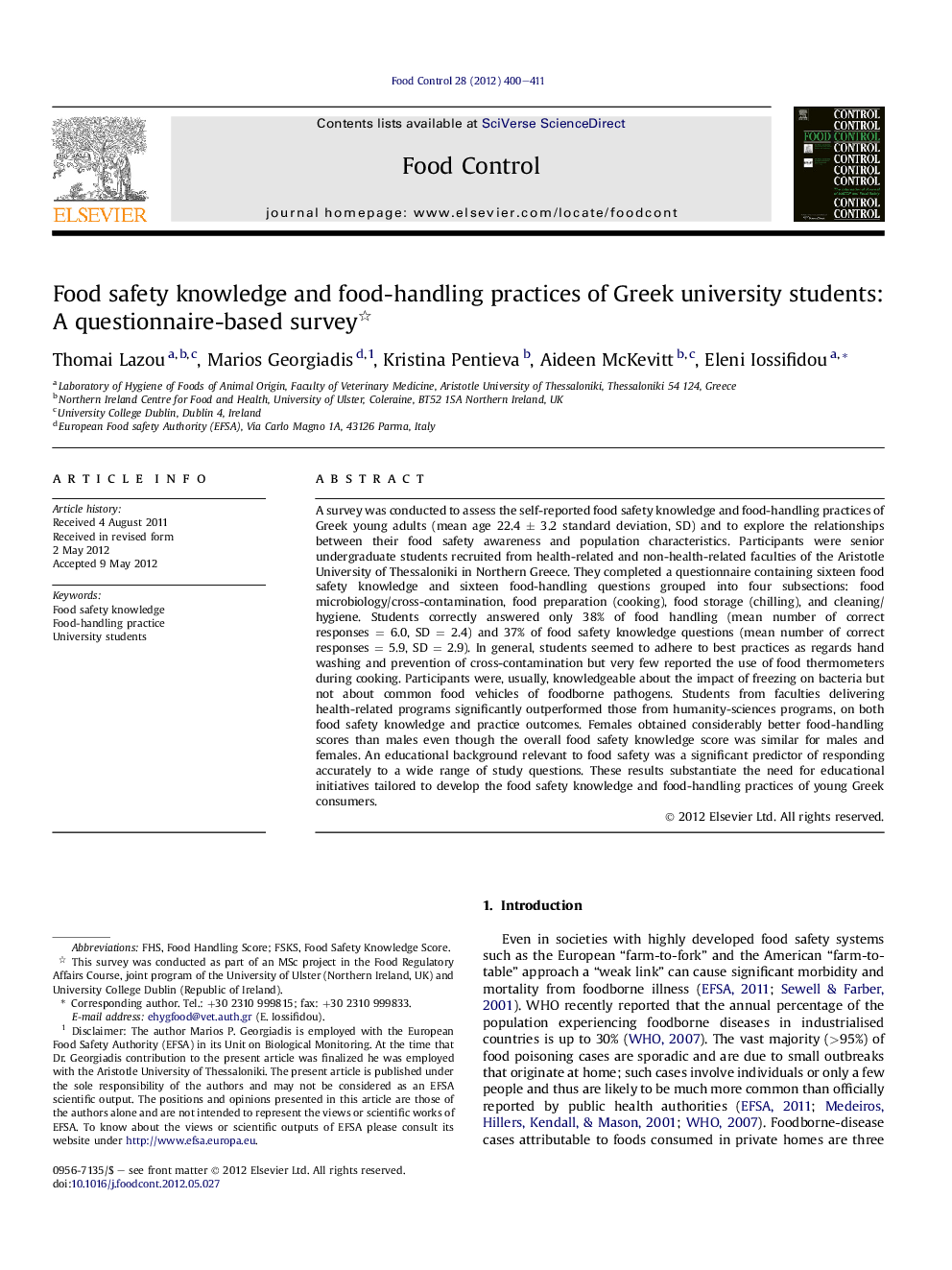| Article ID | Journal | Published Year | Pages | File Type |
|---|---|---|---|---|
| 6394357 | Food Control | 2012 | 12 Pages |
A survey was conducted to assess the self-reported food safety knowledge and food-handling practices of Greek young adults (mean age 22.4 ± 3.2 standard deviation, SD) and to explore the relationships between their food safety awareness and population characteristics. Participants were senior undergraduate students recruited from health-related and non-health-related faculties of the Aristotle University of Thessaloniki in Northern Greece. They completed a questionnaire containing sixteen food safety knowledge and sixteen food-handling questions grouped into four subsections: food microbiology/cross-contamination, food preparation (cooking), food storage (chilling), and cleaning/hygiene. Students correctly answered only 38% of food handling (mean number of correct responses = 6.0, SD = 2.4) and 37% of food safety knowledge questions (mean number of correct responses = 5.9, SD = 2.9). In general, students seemed to adhere to best practices as regards hand washing and prevention of cross-contamination but very few reported the use of food thermometers during cooking. Participants were, usually, knowledgeable about the impact of freezing on bacteria but not about common food vehicles of foodborne pathogens. Students from faculties delivering health-related programs significantly outperformed those from humanity-sciences programs, on both food safety knowledge and practice outcomes. Females obtained considerably better food-handling scores than males even though the overall food safety knowledge score was similar for males and females. An educational background relevant to food safety was a significant predictor of responding accurately to a wide range of study questions. These results substantiate the need for educational initiatives tailored to develop the food safety knowledge and food-handling practices of young Greek consumers.
⺠University students exhibited poor food safety knowledge and food-handling practices. ⺠The lowest ratings related to food microbiology knowledge and cooking practices. ⺠Health students were more knowledgeable in food safety than theoretical students. ⺠Females reported better food-handling practices than males. âºFood safety-related education was a significant predictor of food safety awareness.
